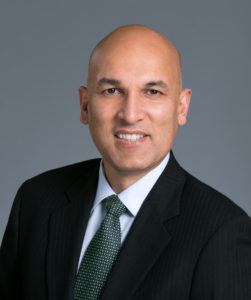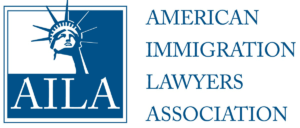What is an E-2 Treaty Investor Visa: Complete Guide
The E-2 Treaty Investor Visa allows nationals from countries that have a Treaty of Trade and Commerce with the United States to invest a substantial capital in a U.S. business. To qualify for an E-2 visa, the investor must actively participate in the development and direction of the enterprise, and the investment must be in a bona fide business.
A "bona fide business" is a legitimate and functioning commercial or entrepreneurial venture that provides services or items for profit. The business must comply with applicable legal standards and not exist only to provide a living for the investor and their family.
The E-2 visa is initially valid for two to five years but can be renewed indefinitely, provided the investment continues to fulfill the E-2 requirements.
Procedure & Requirements
- The investor must have the citizenship of a treaty country;
- To ensure the successful operation of the enterprise the investment must be substantial and sufficient, with investment funds or assets committed and irrevocable;
- The business must be a real operating enterprise, and the investor must actively be in the process of investing or have already invested the funds;
- The investor must possess the ability to develop and direct the business, holding at least 50% ownership, or possessing operational control;
- Upon meeting the requirements, the investor should file a Form DS-160 with the U.S. Consulate in their home country;
- If already in the U.S., the investor may file Form I-129 to change status to E-2;
- Interviews at a U.S. Embassy or Consulate are typically required for E-2 visa approval.
Related Issues
- Spouses and/or unmarried children under the age of 21 are eligible to accompany the investor in E-2 dependent status. Spouses are eligible to obtain work authorization in the U.S.;
- There is no statutory limit on the number of E-2 visas issued annually;
- E-2 visas generally allow travel in and out of the U.S., but it's advised to consult with an immigration attorney regarding specific travel considerations;
- E-2 visa holders may extend their status by filing for extensions or leaving and reentering the U.S.
E-2 Treaty Investor Visa: Questions & Answers
The E-2 visa is a nonimmigrant visa, which grants the holder temporary permission to reside in the United States to establish or invest in a U.S. business.
With a B-1 visa, you can enter the United States to establish, but not operate, a business. Having B-1 status prevents you from being compensated by a company in the United States. You may, if necessary, employ people (with work authorization) to manage and conduct activities until your E-2 visa is approved.
Yes. The regulation require that the funds must committed to the business and must be at risk. If money is being held in an escrow account with the expectation that it would be released upon receipt of an E-2 visa, then the money is irrevocably committed and meet the requirements. A simple plan to invest, the availability of funds in a bank account, or the possibility of future investment opportunities with no immediate financial commitment are not sufficient to meet the requirements.
No, property ownership in the United States does not qualify you for a E-2 visa. To qualify for an E-2 visa, the investment must be a commercial or entrepreneurial enterprise producing a service or goods. The investment must entail funds and assets for which the investor assumes personal risk.
If you buy an existing business, you have an advantage to make the purchase contingent on the E-2 visa issuance. Doing this will place the funds in an escrow account which are only released to the seller upon issuance of the visa. Hence buying an existing business maybe more advantageous since in case of non-issuance of a E-2 visa, you will be entitled to your funds.
A bona fide enterprise is a real and active commercial or entrepreneurial undertaking, producing some good or services for profit. An investment with the purposes for potential appreciation in value like stocks, land, realty, etc. will not qualify as a bona fide enterprise.
There is no set requirement on the amount of investment needed for E-2 visa. The regulations require the investment to be sufficient and substantial for the success of the enterprise. It is a subjective standard with no fixed threshold. The total investment needed, for a successful E-2, would depend upon the nature and scope of the enterprise. It is important to note that the investment is not ‘marginal’ i.e., it must have the capacity to generate more than a minimum income for the E-2 investor and his/her family.
An enterprise which does not have the present or future capacity to generate more than enough income for the investor and his/her family is considered a marginal enterprise. An enterprise is not considered marginal if it has present or future capacity to make a significant economic contribution. Such a future capacity should generally be realized within five years from the date the E-2 beneficiary commences normal E-2 business activity.
Yes, you will need to show a clear and legitimate path of the source of fund that you will be investing.
Any funds that an E-2 investor have control over and have been obtained from lawful sources is acceptable. Such source includes but is not limited to:
- Personal savings.
- Investment earning.
- Loans secured against personal assets like home, etc.
- Some unsecured loans.
The proportionality test is used to determine whether the E-2 investment is substantial. An inverted sliding scale is used for this test i.e., the lower the cost of the E-2 investment, the higher, ‘proportionately’ the investment must be to meet the test. This test compares two things:
- The investment amount.
- The cost of setting up a new business or purchasing an existing business.
For instance, if the business purchase price is $200,000, and the investment amount is $180,000, the percentage of investment is 90% vs. the cost of setting up or purchasing a business being $1,000,000 and $500,000 being the investment, the percentage of investment is $50%.
Ideally it is recommended that the lower the cost of setting up or purchasing a E-2 business, the higher the percentage must be to document it as being substantial. In other words, the higher the cost of setting up or purchasing a E-2 business, the lower the percentage can be. Hence any of the two examples above may be acceptable to document investment requirements for an E-2 Treaty Investor visa.
All costs to establish or purchase your E-2 business can be used to document investment in the business. Some examples include:
- Fee paid to professionals.
- Any costs related to Intellectual Property (IP).
- Costs to incorporate the business.
- Promotional activities.
- Marketing activities.
- Purchase or leasing machinery.
- Leasing or purchase business space.
Yes, your spouse and/or unmarried children under 21 are allowed to accompany you on an E-2 visa. While your spouse will be work authorized, you children will not be able to work in the U.S. on an E-2 visa.
No, your spouse is allowed to work for your E-2 business or any other company in the U.S.
E-2 dependent spouses and children may attend school in the United States. It is essential to note, however, that while they hold E-2 status, they will not be eligible for employment benefits typically associated with F-1 student status, such as post-completion Optional Practical Training. In addition, E-2 minors enrolled in U.S. universities who reach the age of 21 must switch to an F-1 visa to continue their studies.
If you are in the U.S. in a valid nonimmigrant status, you may be able to change status in the U.S. to an E-2 status without leaving the U.S. If you are ineligible to change status to E-2 or are outside the U.S., then you must submit an E-2 visa application at the U.S. consulate in your home country.
Unfortunately, you are not eligible to apply for change of status if you are in the U.S. on a Visa Waiver Program. You would need to depart the United States and submit an application for E-2 Visa at the U.S. embassy or consulate in your home country.
Yes, you are permitted to travel in and out of the U.S. during the validity of your E-2 visa.
Unfortunately, dependent E-2 family members cannot enter the U.S. prior to the E-2 investor. The family members should either come along with the investor or follow the investor.
An E-2 employee visa may initially be given for a maximum of 5 years, with the possibility of limitless extensions as long as the relevant requirements are met.
A U.S. visa allows an applicant to enter the U.S. and the beneficiary of the visa is allowed to enter/re-enter the U.S. during the validity of the visa. The duration for which a visa applicant is allowed to stay in the U.S. is determine by the CBP officer at the port of entry (POE) and for an E-2 visa applicant, the CBP can only permit a duration of stay not lasting more than 2 years. If you were issued an E-2 visa for a duration longer than the period for which you were allowed to stay in the U.S. you can take a short trip to a neighboring country and reenter the U.S. during the validity period of your E-2 visa to obtain a fresh 2 years of E-2 status from CBP.
While a business plan is not mandated for an E-2 visa, a properly prepared business plan helps document the investment plan and business goals. In the absence of a business plan, you will need to provide supplemental documents/evidence to support these assertions.
An E-2 visa business plan is a crucial document and is used to document that investment is viable, will contribute to the U.S. economy, and is capable of creating jobs. A good business plan, amongst other things, will set out the E-2 enterprises goals and projections and will also demonstrate that the investment being made in the E-2 enterprise is sufficient to meet the projected growth.
Yes, as long as you use your treaty country passport to apply for an E-2 visa, you will be eligible for an E-2 visa.
An E-2 employee visa lets a person from a treaty country work for an E-2 treaty investor business, i.e., the business in which the treaty investor has invested substantial capital.
Meet Attorney Asheesh Sharma – Your Trusted Advisor
Attorney Asheesh Sharma, with 22+ years of professional experience in U.S. immigration law, is a familiar figure both in Australia and the U.S. His frequent visits to Australia and family ties across the country enhance his understanding of the unique needs of Australian clients. His personal experience with the U.S. Consulates in Australia, first as an applicant and then representing clients, brings invaluable insights and empathy to your case.



